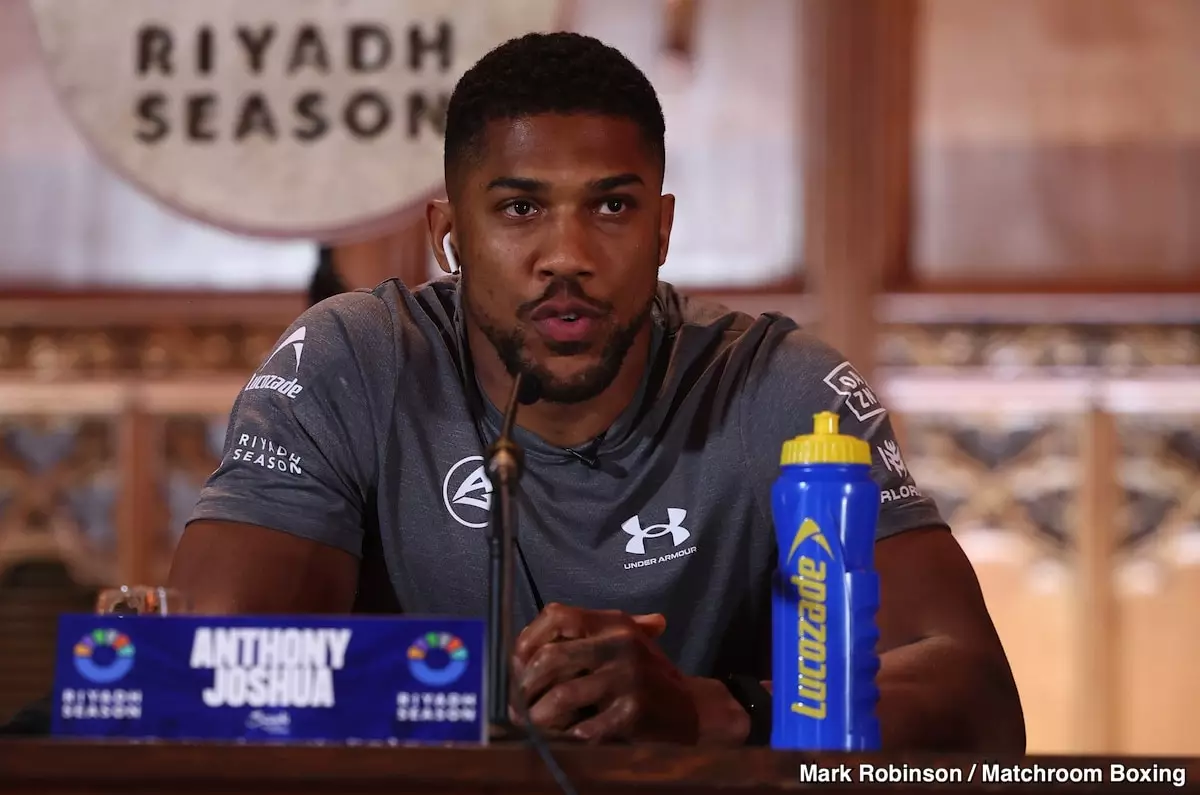Recently, the tragic death of Kevin Mitchell’s younger brother has cast a shadow over the boxing world. Mitchell, a former two-time lightweight title challenger, lost his 31-year-old sibling due to a devastating motorcycle accident. This untimely event has left the family grappling with the emotional toll and financial burdens of laying a loved one to rest. In a moment of gravitas and compassion, heavyweight champion Anthony Joshua stepped in to provide support when it was needed most.
In a touching move that demonstrates the solidarity within the boxing fraternity, Joshua took it upon himself to cover the funeral expenses for Kevin’s brother. This gesture came during a time of heightened stress for Mitchell’s family, burdened not only by grief but also by financial concerns amidst an already challenging situation. Kevin recounted the intimate details of the conversation, stating how Joshua reached out to his mother directly. This act of kindness—a phone call where Joshua offered to alleviate their troubles—is a quintessential display of humanity that transcends the competitive nature of sports.
Anthony Joshua, who is recovering from a recent fifth-round knockout loss to IBF champion Daniel Dubois, remains a polarizing figure in boxing. Despite the skepticism surrounding his performance and future in the sport, including speculation about potential high-stakes bouts with Tyson Fury, Joshua’s character shines through moments like these. The public often scrutinizes athletes for their performance in the ring, but it is during times of personal hardship that true character is revealed.
Joshua’s generous gesture also prompts a discussion about the financial realities faced by boxers. With a net worth estimated around $200 million, and possibly nearing $300 million with anticipated future matches against fighters like Fury and Oleksandr Usyk, Joshua sits at the pinnacle of financial success in sports. However, this wealth also places him under scrutiny not just for his financial decisions, but also for how he handles the pressure of future bouts and the health risks associated with them.
The dialogue around Joshua’s future is intensifying, especially following comments from Daniel Dubois’ trainer, Don Charles. Expressing concern for Joshua’s well-being, Charles believes that the focus should not only be on financial gain but rather on the fighter’s health. He argues that promising encounters could come at a significant personal cost, urging Joshua to reconsider engaging in immediate rematches. Boxing is a brutal sport, and while the prospect of lucrative matches is enticing, the implications on an athlete’s longevity and health should take precedence.
Ultimately, Anthony Joshua’s sympathetic act serves as a reminder that beyond the accolades and financial rewards, the spirit of camaraderie and compassion is what truly matters. In a sport defined by rivalry and competition, Joshua exhibits that personal integrity can prevail, providing a narrative that resonates beyond the ring. As fans and fighters alike reflect on the implications of boxing, this story reminds us that even champions have the capacity for unparalleled kindness in times of need.

